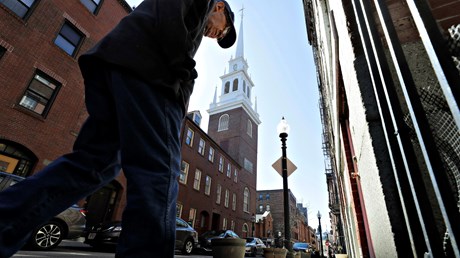Before coronavirus hit, conservative Protestant churchgoers were least concerned about a future pandemic.

The biggest debate on social media this weekend has been over the appropriate level of concern for a significant, long-term disruption of daily activities because of the COVID-19 pandemic. The disagreement skews partisan, with new surveys showing Republicans are far less likely than Democrats to fear the coronavirus outbreak in the US.
In recent years, Americans across religious traditions have become more worried about the potential for a major epidemic, the kind of hypothetical question that has become all too real in the past few weeks.
But the earlier data shows fears around the spread of disease tend to be lower among Protestant Christians who identify as politically conservative and attend church weekly. This may explain why some conservative leaders, including a couple of President Donald Trump’s evangelical advisers, hesitated to cancel in-person worship or on-campus classes amid the current coronavirus precautions.
Starting in 2014, the Chapman Survey of American Fears asked respondents, “How worried are you that a pandemic or a major epidemic could occur in the United States in the next 25 years?” in its annual survey to gauge public sentiment around common phobias, spiritual forces, and natural disasters. From 2014 to 2018, concern over potential pandemics rose. Fewer people across religious groups said they were “not afraid” about the possibilty of a new disease spreading in our country.
When the survey began in 2014, most were not that worried. Two-thirds of Protestants and 60 percent of Catholics were not afraid or just slightly afraid of a major epidemic, and those of no faith tradition were far less concerned, with three-quarters saying they were not afraid or slightly afraid.
Four ...
from Christianity Today Magazine https://ift.tt/2QkLpQJ
No comments:
Post a Comment